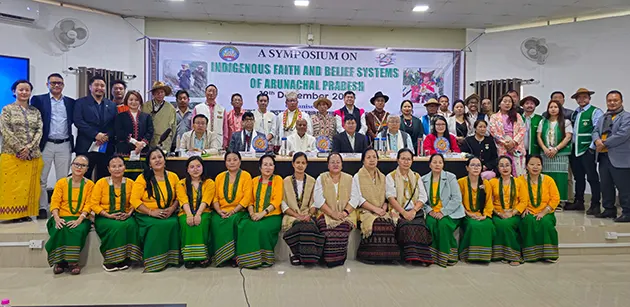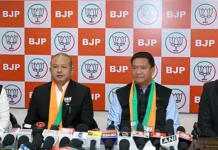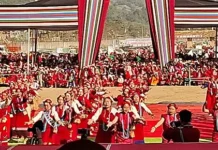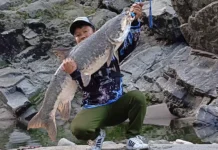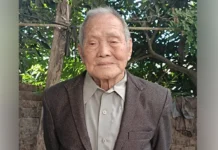ITANAGAR, 19 Dec: “There has been a decline of shamans from 6,000 to 250 shamans in the last five years,” said IFCSAP advisory board co-chairman Katung Wahge, adding that “practice of belief systems and traditional practices is necessary, not preservation.”
He was speaking during the inaugural session of a symposium on ‘Indigenous faith and belief systems of Arunachal Pradesh’, organised by Rajiv Gandhi University’s Arunachal Institute of Tribal Studies (AITS) and the Indigenous Faith & Cultural Society of Arunachal Pradesh (IFCSAP) here on Thursday.
He said, “Resource is must and more importantly for tribes with smaller population. One strategy is the gurukul system for educating children.”
Earlier, IFCSAP president Dr Emi Rumi spoke on the significance of 25 years of IFCSAP.
AITS Director Prof Jumyir Basar said that the indigenous religions and way of life are integral to the people. “Traditions evolve according to the time, and historical influences shape indigenous religion too. Converted natives still keep hold of the worldview that is intrinsic to the indigenous belief system, such as the existence of supernatural spirits,” Prof Basar added.
RGU Social Sciences Dean Prof Sarit Kumar Chaudhuri highlighted the strength of indigenous faith and belief systems and also highlighted the changes that took place in a rapid pace in Arunachal Pradesh.
“One should also rethink larger representation of smaller communities such as Puroik and others. Accommodation of other belief systems is very natural to happen in indigenous religion. It is not possible to practice or engage with the faith system that was done in 100 years back in its pristine form. New forms come up in the practice and that is the way forward,” he opined.
RGU Registrar Dr NT Rikam said that the symposium would provide the tribes, especially the lesser known and smaller tribes, a chance to represent their views.
“Propagation, promotion and practice of the indigenous faiths are a necessity. One way of moving forward is to replicate the established religion and to document them in writing. Major emphasis is being given to the development of scripts amongst many tribes of the state. We need to start teaching the local languages from the tender stage and not just introduce it in the middle schools,” he added.
He also urged the IFCSAP to take help from the researchers in the RGU in studying and documenting the indigenous faiths. “Develop a systematic documentation of the indigenous faiths parallel to the established religion and start propagating,” he added.
RGU Vice Chancellor (i/c) Prof J Sahoo in his address said, “We need to document the indigenous faiths but also need to integrate the modern practices and education. Our faiths need to go hand in hand with recent scientific development. It should be done by taking forward the valuable cultural practices and adopting the positive aspects of scientific development. While we move forward, heavily emphasising on the documentation and institutionalisation of the indigenous faith, we must also do away with the negative practices of traditional faiths.”
The symposium was attended by resource persons from Aka, Bugun, Monpa (Brokpa), Tagin (Nah), Nocte (Kaasik), Meyor, Sajolang, Sartang, Wancho, Adi (Boh, Ramo, Bokar) communities, Indigenous Affairs Director Sokhep Kri, IFCSAP vice president Pai Dawe, members of kargu gamgi, Niti Vihar, medar nelo, Itanagar, nyedar namlo, Itanagar, executive members of the IFCSAP, faculty members and scholars of RGU.

